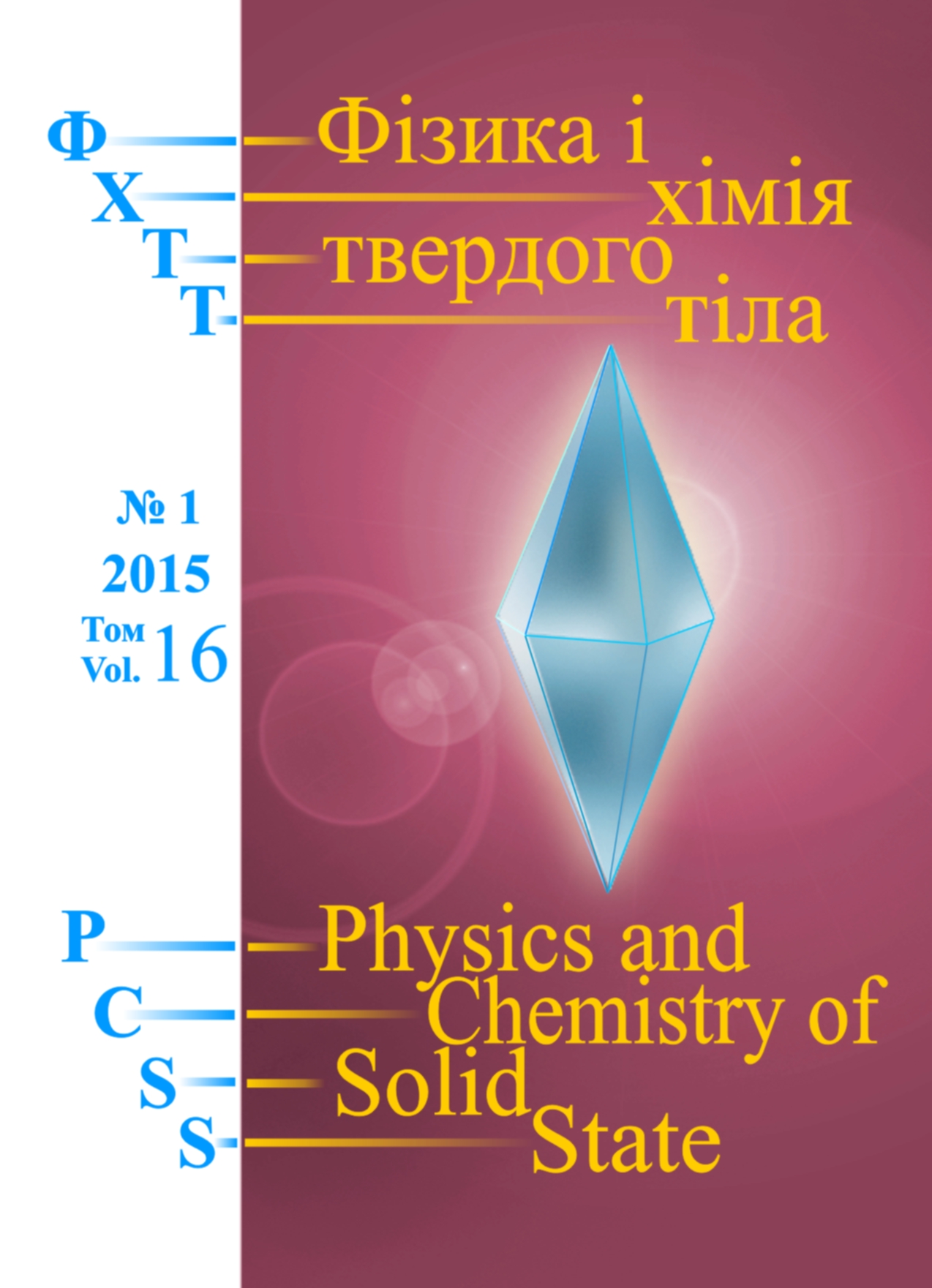Physics and Chemistry of Solid State
2015 Vol.16 №1 |
||
|
|
||
DOI: 10.15330/pcss.16.1.145-154
T.R. Tatarchuk, H.O.Sirenko, U.L. Kush
The Solution of Applied Problems of Complex Compounds with the
d-Elements Central Atoms Surrounded by Octahedral Ligand Based
on the Theory of Crystal Field
Vasyl Stefanyk Precarpathian National University, 57, Shevchenko Str., Ivano-Frankivsk, 76018,
Ukraine, e-mail:tatar_ch@inbox.ru
The crystal field theory as applied to complex compounds of d-elements surrounded by octahedral ligans was described. Ligand field causes the splitting of d-orbitals, which is characterized by the energy splitting Δo. The spectrochemical series of ligands and examples of high-spin and low-spin complex compounds depending on the degree of force field were presented. Deformation of octahedral complexes by the Jahn-Teller effect was described. It shows the calculation of gains power as a result of complex formation, called the crystal field stabilization energy (CFSE) depending on the electronic structure of the central ion and the ligand position in spectrochemical series. It shows the distribution of electrons in orbitals of eg and t2g complex ions with different electronic configurations (from d1 to d10), examples values of energy orbitals and energy of crystal field stabilization for high-spin and low-spin octahedral complexes.
Keywords: crystal field, ligand, splitting energy, сentral atom, d-orbital, speсtrochemical series, tetrahedral complex, octahedral complex, low-spin complexes, high-spin complexes.
Full text (on original language) .pdf
Home
Reference
[1] V.B. Єmel'janov, Posіbnik z hіmії koordinacіjnih spoluk (Kiїv, 2009).
[2] Ju.D. Tret'jakov, V.I. Putljaev, Vvedenie v himiju tverdofaznyh materialov (Nauka, Moskva, 2006).
[3] O.M. Stepanenko, L.G. Rejter, Zagal'na ta neorganіchna hіmіja, ch.1 (Pedagogіchna presa, Kiїv, 2002).
[4] Ju.D. Tret'jakov, Neorganicheskaja himija, t. 1 (Akademija, Moskva, 2004).
[5] V.A. Novozhenov, Vvedenie v neorganicheskuju himiju (Izd-vo Altajskogo gos. un-ta, Barnaul, 2001).
[6] N.T. Kuznecov, B.D. Stjopin, L.Ju. Alikberova, N.S. Rukk, Kompleksnye soedinenija (MITHT, Moskva, 2002).
[7] V.V. Skopenko, Koordinacionnaja himija (Akademkniga, Moskva, 2007).
[8] K. Hauskroft, Je. Konstebl, Sovremennyj kurs obshhej himii, t. 2 (Mir, Moskva, 2002).
[9] D. Shrajver, P. Jetkins, Neorganicheskaja himija, t. 1 (Mir, Moskva, 2004).
[10] D. Shriver, R. Atkins, Inorganic Chemistry (Freeman and Company, New York, 2010).
[11] M.S. Silberberg, Principles of General Chemistry (Higher education, 2010).
[12] Ju.P. Afinogenov, Himicheskaja svjaz' v kurse neorganicheskoj himii, t. 4 (Izd-vo Voronezh.gos.un-ta, Voronezh, 2004).
[13] U. Muller, Inorganic Structural Chemistry (John Wiley & Sons Inc., USA, 2006).
[14] G. Oxtoby, Principles of Modern Chemistry, (Thomson Learning Inc., USA, 2008).
